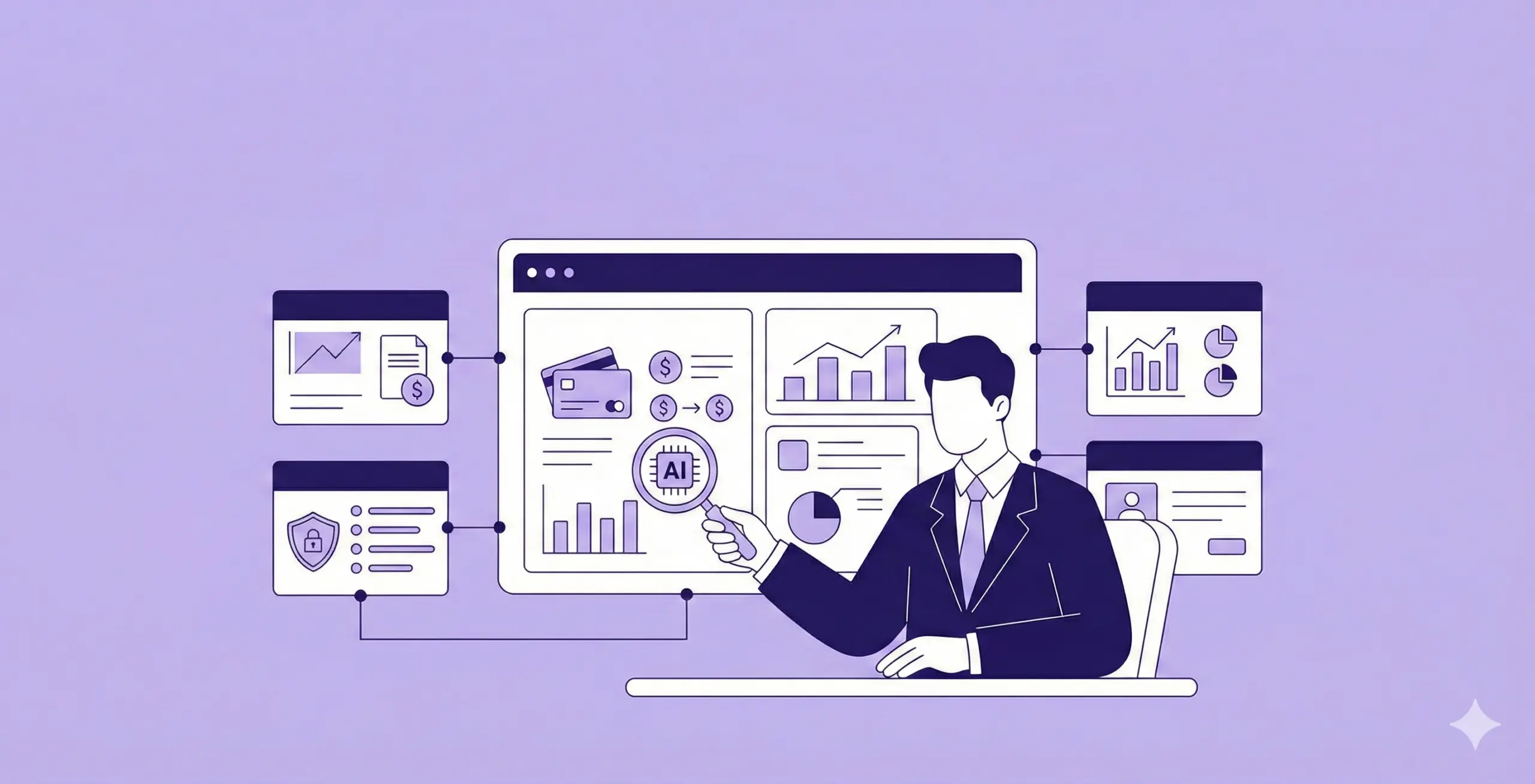August 01, 2023
The Modern CFO: The Office of the CFO Part 1/3

Sign up for our newsletter
Stay informed with the latest trends and best practices in finance and procurement.

A modern CFO is more than a number cruncher. They’re a forward-thinking, strategic player that understands how to generate value. It takes creativity, flexibility, and innovation to drive transformation and profitability at this level. There will always be someone to balance the books and perform routine tasks, but the role of today’s Chief Financial Officer is much more dynamic.
The CEO of the future uses financial data to influence operational decision-making, and must possess more skills than a technical accounting background. A progressive CFO must also partner with the CEO, using their guidance and competencies for the financial context that drives choices.
CFOs play a critical role in supporting business growth. Here, we take a look at the evolving function of the Chief Financial Officer, including top challenges, the best solutions, AI, strategic planning, and the future of finance.
Over the last few decades, the role of the CFO has drastically changed, with the job requirements undergoing a profound shift. Although historical tasks like financial reporting, book and record keeping, and statutory compliance, are all still important, these tasks are often taken for granted by the CEO.
Today’s CFO is a financial leader and strategist. Shifts in CFO requirements are now caused by macroeconomics like:
- Technological advancements
- Inflation
- Shifting business landscapes
- Evolving expectations.
That’s why, the CFO of today must possess technical skills, and use financial data to make business decisions and influence strategy.
There is an old philosophy that you need to build wide for the CFO office, but no one wants a 50-point solution in their stack. Ten solutions that are well orchestrated, with amazing integrations in between them, are all you need for day-to-day financial management.
Taking a Dynamic Approach
Like a Swiss Army knife, the CFO is expected to be a multifaceted finance leader, offering a variety of skills related to data analytics, strategic decision-making, relationship management, and risk assessment. A few of the ways in which the role has evolved include:
Emerging Technologies
Today’s CFO is increasingly responsible for leveraging data to drive insights and inform decision-making. They are expected to understand emerging technologies like machine learning, AI, and automation, and use them to enhance forecasting, analysis, operational efficiency, and other areas of the business.
Risk Management
The modern CFO is a business leader that plays a crucial role in risk management and governance. They must establish robust financial controls, ensure compliance with regulations, and mitigate financial risk.
Progressive CFO duties include risk assessments, data privacy, and cybersecurity, as well as managing relationships with auditors and regulators.
Business Partnering
CFOs are expected to collaborate closely with other functional departments and leaders within the organization, closely working with the CEO to provide financial insights and analyses. CFOs partner with sales, marketing, and operations to better align financial goals with business objectives, drive operational efficiency, increase cash flow, and optimize resource allocation.
Investor Relations
CFOs continue to play a significant role in managing investors and financial stakeholders. They are responsible for communicating growth strategies, financial performance, and investment opportunities to analysts, shareholders, and the border investment community.
Additionally, CFOs play an important role in capital management, including funding strategies, capital allocation decisions, and optimizing capital structure.
Sustainability and ESG
Environmental, Social, and Governance (ESG) factors are gaining prominence in the CFO world. They are expected to integrate sustainability into the bottom line and quickly assess ESG risks.
In some cases, CFOs must also report on ESG performance to stakeholders. In a recent study, 27% of CFOs believe ESG disclosures will be their biggest challenge over the next few years. This includes evaluating the impact of sustainability initiatives on customer experiences and incorporating ESG metrics into reporting.
Different Industries
Today’s CFO is more of a systems architect. There is a lot of data and processes that belong to the CFO, which can vary greatly depending on the industry.
For example, the responsibilities and skillset of a CFO in B2B will look nothing like consumer goods. In the AR/AP and finance space, processes are mandated by what the business does. Companies in healthcare, oil, and technology, all have different forms of regulations and policies that must be met.
From startups to enterprise corporations, there’s different revenue recognition; while some have inventory, others do not. The next phase of the conversation must include the different CFO responsibilities for various industries. Why? Because pain points matter, and they change depending on the business sector.

